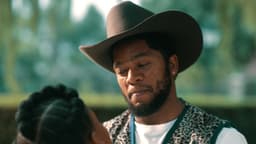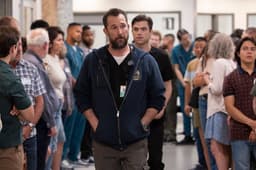The most binge-worthy series on Showmax

Where to see the cast of Shaka iLembe S1-2 on Showmax
From Nomzamo Mbatha as Queen Nandi to Lemogang Tsipa as King Shaka Zulu and Thembinkosi Mthembu as King Dingiswayo, see the cast of Shaka iLembe in some of their other acclaimed roles on Showmax. Binge now on Showmax.

Landman S1-2
Taylor Sheridan's Landman stars Billy Bob Thornton. In the heart of Texas, roughnecks and billionaires collide in the get-rich-quick oil industry.

I Love LA S1
Toxic friendships are taken to a whole new level in this off-the-wall comedy, as a co-dependent friend group navigates life and love in Los Angeles.

The Mindy Project S1-6
Dr Mindy Lahiri (Mindy Kaling from 'The Office') juggles her personal dreams and professional duties in a quirky New York medical practice.
Latest Stories

Schalk Bezuidenhout trades stand-up for 9-5 in Die Kantoor

A heartbreaking loss: Nolwandle Biyela’s final stand in Outlaws Season 2

Fall in love with romantic drama Touch, now on Showmax

Antonie Marx on Volspoed and why it's a must-watch

Sandra Stein makes her debut on Law, Love and Betrayal S2

Albert Pretorius on Die Kantoor, SA’s re-imagining of The Office

20+ addictive South African reality shows to stream

Where to watch The Real Housewives franchise online

How to Train Your Dragon: Bringing Hiccup and Astrid to life

What to watch on Showmax in January 2026

7 things to know about indie award-winning movie Dìdi

Mission: Impossible – The Final Reckoning’s South African stunts

Die Kwiksilwers (2024)

Where to see the cast of Mpondoland on Showmax

Angel on The Real Housewives Ultimate Girls Trip, Jojo and more

Thandolwethu Zondi on his new role in Outlaws S2
Must-watch trailer for Showmax's turbo-charged reality series Volspoed

The Real Housewives Ultimate Girls Trip cast on first impressions, beefs and more

Fana Mokoena on playing a sangoma in Masinga

Princess Jecoco on The Real Housewives Ultimate Girls Trip Africa

Tlali returns: Outlaws’ most loved and hated villain is back

Novocaine: the US box office hit shot in Cape Town

Why Jackie Phamotse says Slay Queens is a must-watch

Evodia on Ultimate Girls Trip Africa and her return to reality TV
























